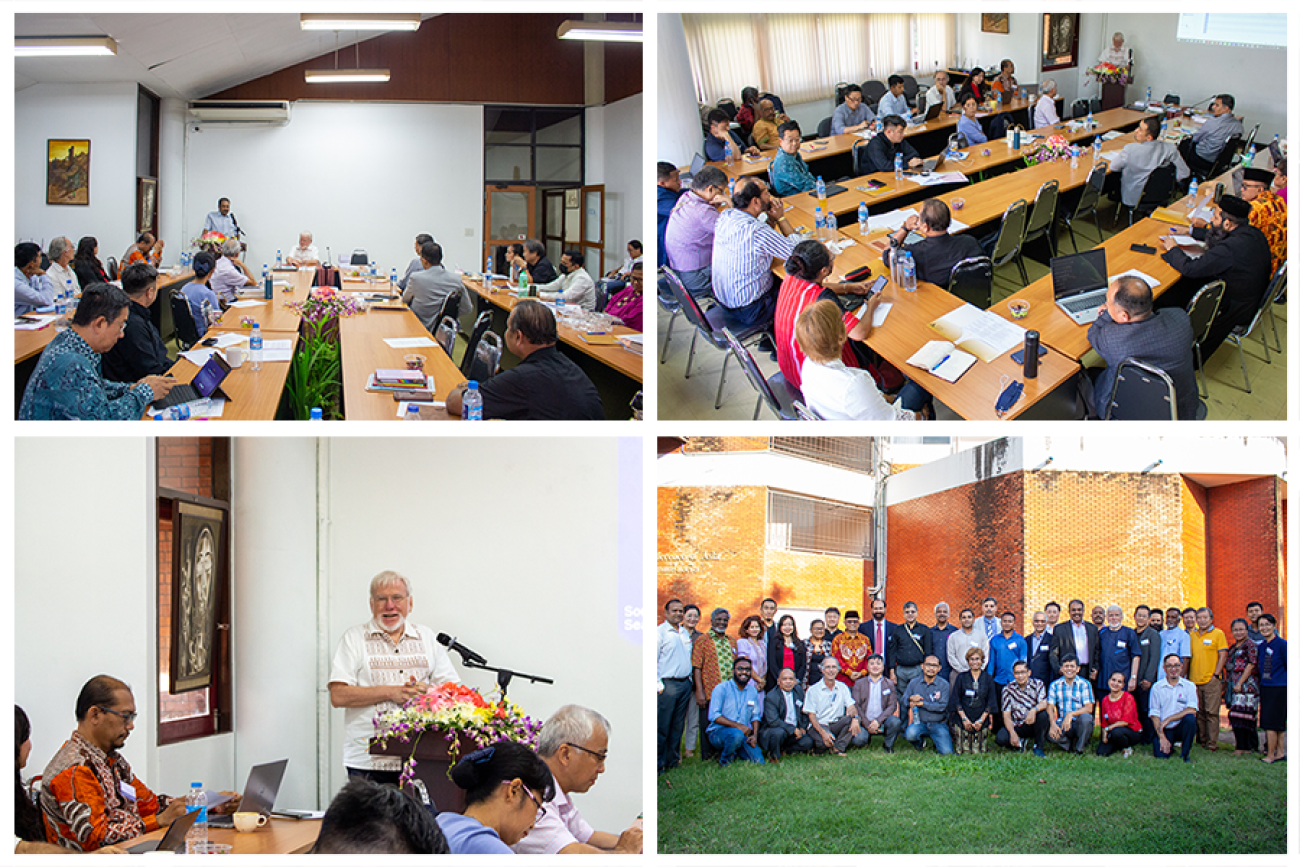Asian theological educators affirm need to incorporate good governance and integrity leadership in curricula

The Asia Regional Consultation , ‘Towards Theological Education on Good Governance and Integrity Leadership’–2022
Chiang Mai: The Asia Regional Consultation , ‘Towards Theological Education on Good Governance and Integrity Leadership’organised by the Christian Conference of Asia (CCA) closed with the affirmation and commitment to incorporate good governance and principles of integrity leadership and anti-corruption strategies as part of the curricula that will build the capacity of current and future leaders of the churches in Asia, both ordained and lay. A Communique adopted at the end of the Consultation affirmed the need for advancing curricula helpful for the implementation of good governance and integrity leadership in the Asian churches and associated theological institutions. The Communique acknowledged that good governance and integrity leadership was indeed a challenge in many countries and is much required to counter the corruption that is rampant in many Christian institutions. The participants affirmed that good governance was at the heart of prophetic diakonia and is imbibed in the Christian values of stewardship, discipleship, and love. Continuing with the affirmation, the participants agreed that leadership is a blend of integrity, pastoral care, and authority, and is a need in Christian theological institutions. With the hope of a positive future, the Communique stressed the need to ensure and implement good governance on all decision-making levels for the good of all. It further emphasised the necessity to train current and future leaders, irrespective of whether they are ordained or lay, on the importance of good governance and integrity, through theological education. Dynamically calling out to the Asian churches and theological institutions, the Communique called upon all to reflect on and renew the theological basis of good governance rooted in the Trinitarian mystery of God, and on church leadership as service and good stewardship. It highlighted the importance of developing and implementing management skills and accountability frameworks. On the second day of the consultation, Dr Eva Wong Suk Kyun, Director of Malaysia Pentecostal Research Centre, Bible College of Malaysia, reflected on the parable of the talents from the gospel of Matthew. She focused on the ‘Master’s Assignment’, the ‘Master’s Appraisal’, and the ‘Master’s Award’. Prof. Dr Christoph Stückelberger presented ‘Mapping of Assets of Churches and Theological Colleges’. He explained governance as a leadership structure, and spoke on decision-making related to rules and regulations for assets. He said that management referred to the execution and monitoring of decisions of the governing bodies, and stewardship was a Christian term for responsible and faithful leadership and management of entrusted goods/assets as stewards of God, the owner of all (assets). In the subsequent session on ‘Overcoming Corruption: Forms, Solutions, and Inputs for Curriculum’, Dr Stückelberger emphasised the need for anti-corruption strategies at individual, interpersonal, and institutional levels. He also mentioned that ethics as values-driven behaviour had a price, and one could not be ethical without being ready to pay a price in situations where we must decide between competing benefits. He also stressed that we need to reflect on and renew the theological basis for overcoming corruption, especially in view of the doctrine of the triune God, in an ecumenical perspective. On the third day Fr. Dr Seung Jun Cho, Gwangju Catholic University (FABC–OEIA), South Korea, reflected on Joseph's good governance and leadership virtues in the book of Genesis. He explained the twelve leadership virtues of Joseph as having a prophetic vision, a positive attitude, honesty and morality, good risk management, an attitude of service and consideration, faithful to one's essential duties, openness to readiness, prudence and composure, vision and hope, positive acceptance of difficulty, never giving up, and revealing faith in God with love. Rev. Dr Van Cliburn M. Tibus from the Divinity School, Silliman University, Philippines, Rev. Dr Asigor Sitanggang from Jakarta Theological Seminary, Indonesia, and Pdt. Dr Wahju Satria Wibowo from Duta Wacana Christian University, Indonesia, made presentatiobd on contextual values and indigenised management principles in good governance, particularly from Asian perspectives. The existing curriculums of the Senate of Serampore, India, was reviewed by Rev. Dr Naveen Rao, Leonard Theological College, Senate of Serampore, and of the Association for Theological Education in Southeast Asia and Asia-Pacific Theological Associations by Rev. Tham Wan Yee, Asia Pacific Theological Seminary, the Philippines. They discussed existing topics and subjects related to good governance in the curriculum. During the session on ‘Building a Theological Pedagogy on Good Governance: Next Steps’ the participants formed a core group with representatives from different countries, aiming to develop curricula related to good governance. The Consultation was attended by around 40 participants, including heads of Asian theological institutions and related associations from across Asia, from 27–30 November 2022 at the CCA headquarters in Chiang Mai, Thailand.










